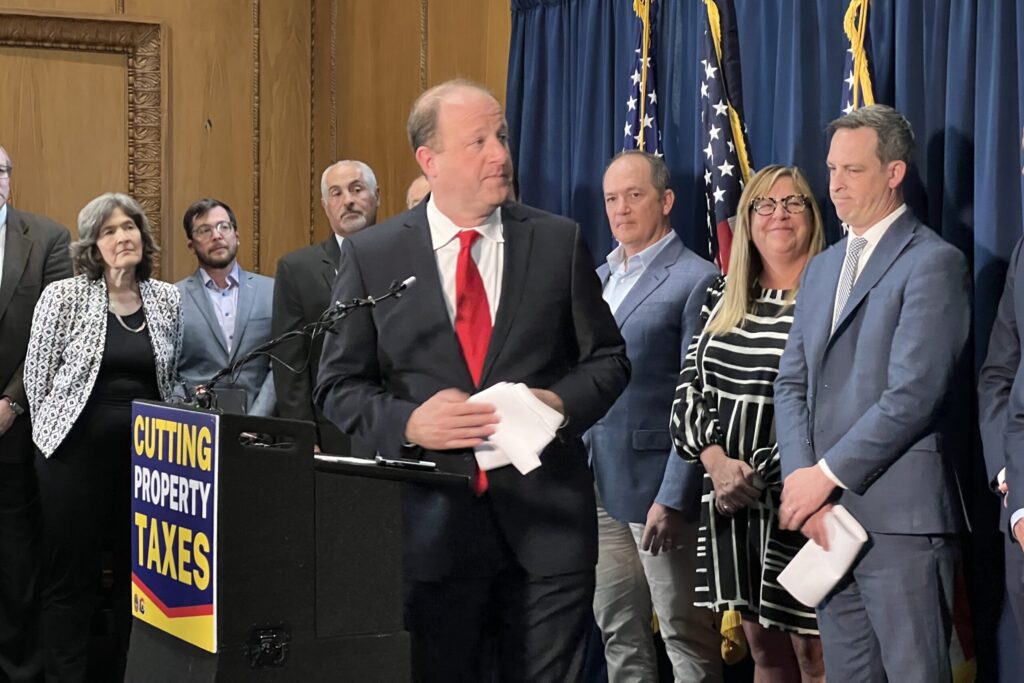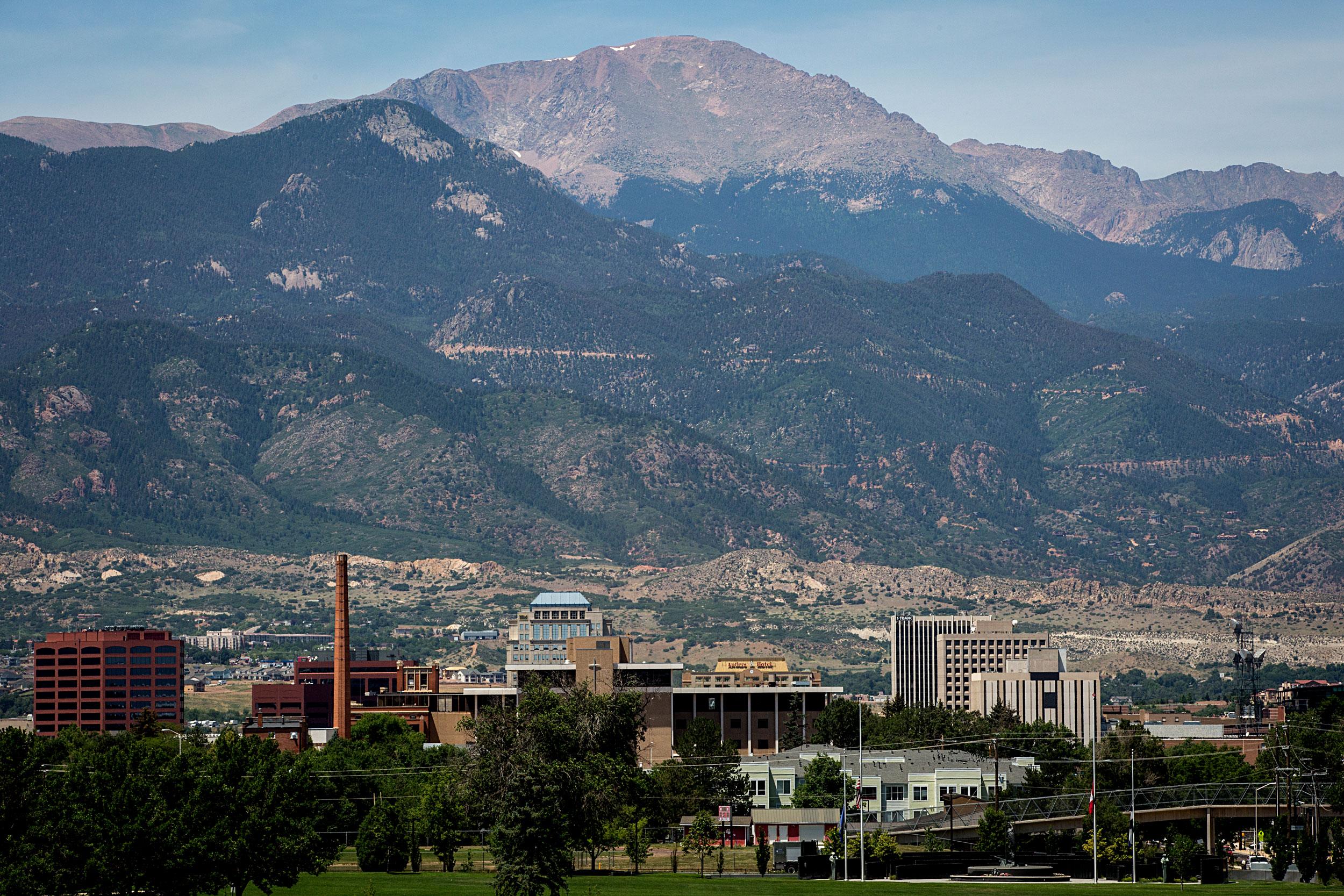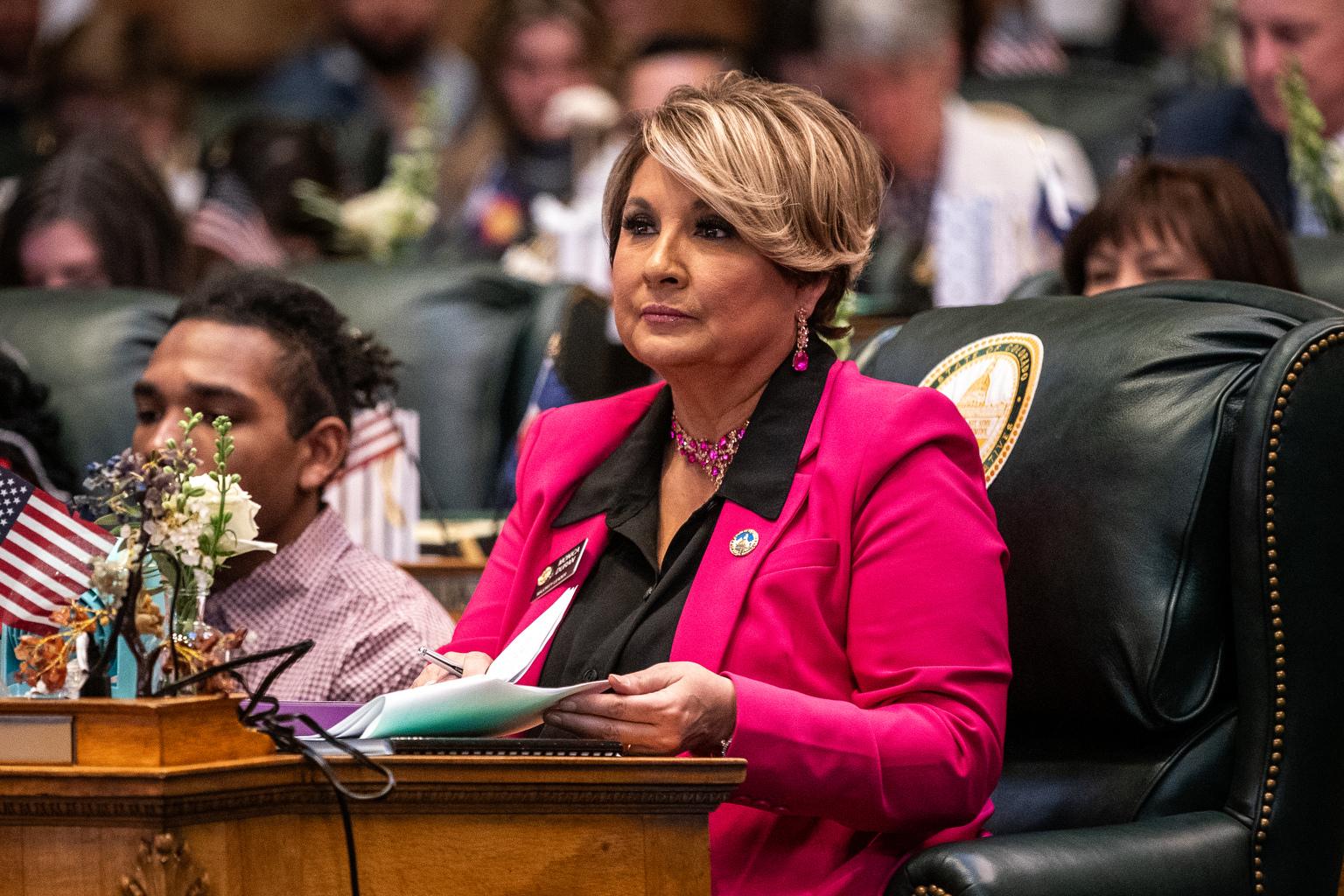
Updated 6:52 p.m.
With property tax increases looming across Colorado, Gov. Jared Polis and fellow Democrats on Monday introduced a plan to potentially offer relief for homeowners and other property owners — if it’s approved by voters this November.
The measure would allow homeowners to avoid about half of the 2024 increase to their property taxes, on average. It would pay for that discount, in part, by reducing the tax refunds that Coloradans receive. The changes wouldn’t be permanent but would last up to a decade.
“Our proposal has the ability to provide long-term reductions while providing immediate savings,” said Senate President Steve Fenberg.
The proposal is a response to large increases in property values, which are set to drive property taxes higher by 20 percent or more across the state for many homeowners.
The sponsors gave the example of a home that was previously valued at $600,000. In this scenario, the home is being revalued to $780,000 — an increase that would be realistic in some cities.
The owner of that home would be facing a property tax increase of about $830 annually, or about 25 percent compared to their current tax burden, depending on the location.
Under this new proposal, they’d instead be looking at an increase in the range of $400 to $650, according to the sponsors. The savings could vary significantly by area, since the bill gives local governments the power to waive some of the new tax limits.
The measure builds on earlier efforts that have already temporarily blunted property tax increase. Altogether, the measures could save property owners $1 billion for both tax years 2023 and 2024, with savings also continuing at a similar rate for years afterward, the supporters estimate.

The measure can’t be passed directly by the legislature. Instead, lawmakers can move to put it on the ballot for voters to approve or reject in November. Two other groups — one conservative and one liberal — are also pursuing their own ballot measures to change property tax collections, meaning voters could face a range of options about how they want to address the issue this fall.
The proposed new measure would make several changes:
- Reduce the amount of home value that is taxed by $40,000 through 2032.
- Reduce the residential assessment rate, which is the statewide component of the property tax formula, to 6.7 percent through 2032. The current baseline is 7.1 percent, though it’s already been temporarily lowered.
- Reduce the assessment rate for commercial properties from 29 percent to 27.85 percent, with further reductions possible after 2026, plus additional cuts for agricultural and renewable energy land
- Add “Truth in Taxation” rules that discourage local governments from allowing taxes to rise faster than the rate of inflation.
- Expand the homestead exemption for seniors, allowing them to discount up to $140,000 of their home’s value instead of $100,000.
“We’re going about this in a thoughtful way,” Polis said at a press conference.
The proposal would also come with a relative cost for many Coloradans. If it’s approved, it would result in smaller TABOR refund checks.
The state would trim individual 2024 refunds by about $46 on average, for a total reduction of about $167 million. That means the 2024 refund pool would be reduced by roughly a tenth. That money would instead be distributed to local governments and others, “backfilling” some of the property tax revenue they stand to lose if the measure passes.
Ben Murrey, director of the conservative Independence Institute’s fiscal policy center, criticized that approach, saying that it was taking money from a pool that reaches most Coloradans and instead using it to provide relief for property owners.
“You're taking that away to give it to owners of homes — who absolutely need a tax break, but those are typically middle class, upper middle class wealthier people who are able to afford a home,” he said. “I think that’s a huge problem with this.”
The bill’s supporters didn’t immediately say how much money it would save for property owners in total.
The measure also places rules around long-term increases in tax bills. If property tax bills are rising faster than inflation, local governments would have to affirmatively decide whether to allow that to happen or lower their property tax rates to slow their tax collections. Local government officials would have to hold a hearing and take a formal vote on allowing the faster-than-inflation increases. (Those rules would not apply to school districts.)
Murrey said more transparency would be good, but Michael Fields of the conservative group Advance Colorado said that it left too much flexibility for taxes to rise.
The savings projections make “these huge assumptions about a cap that counties and cities could ignore anyway,” Fields said, saying the package only “nibbled around the edges.
”Fields’ group is moving to put their own property tax measure on the ballot this fall which would put a hard cap on how much property taxes can increase.
The measure has been in the works for months. It’s drawn criticism, especially among progressives, for focusing help on homeowners while renters struggle with fast-rising costs, too.
Polis argued that the property tax slowdown would still help renters.
“If the property tax bill was scheduled to go up $1,100 a year, that’s basically passed along to renters,” he said. “Renters benefit directly from reducing the property tax rate.”
State Rep. Javier Mabrey, a Democrat, said that wouldn’t be enough.
“I would like to see something in here that was specifically targeted toward renters,” he said.
The state could have passed a tax credit for renters or gotten behind his proposed bill to allow cities to enact rent stabilization laws. That bill was defeated in committee.
Unlike in previous years, there are no Republican lawmakers signed onto this year’s effort. It will be co-sponsored by state Rep. Chris deGruy Kennedy, Rep. Mike Weissman and Sen. Chris Hansen, all Democrats.









